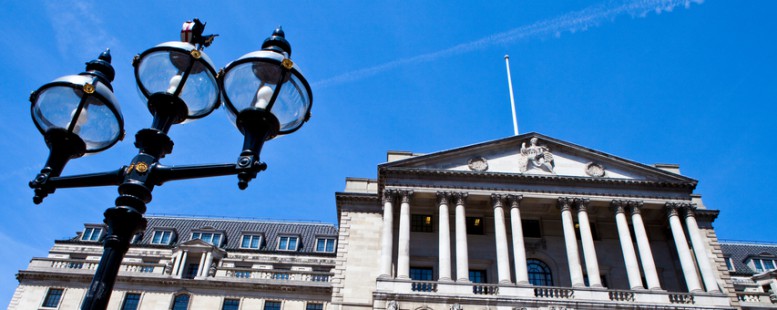Our Opinion: 2016
Life after Brexit

Following Thursday’s clear win for the ‘Leave’ campaign in the UK’s referendum on the European Union, Britain is adjusting to its future. It’s looking like we will not only lack a Prime Minister, but also a leader of the opposition too, who fought a low key campaign to ‘Remain.’
Whoever ends up in charge of all the parties, the government will remain market friendly. If there is a recession, then markets might take a hit.
Whilst there is upheaval, this is a political issue, and not a market one. The political issue that could transform into something more disruptive is the question of whether the euro-zone stays intact.
The key difference between the two campaigns was whether we should try to reform the EU from within, rather than take the risk of leaving. The ‘Remain’ team predicted that, if we left, trade would be disrupted, jobs lost and financial services damaged, and that we’d see a second Scottish referendum that could split the UK. ‘Leave’ saw reform as impossible, and the risks of leaving as overstated – Brexit might cause some disruption, but any problems will soon be overcome and will pale by comparison to the potential benefits.
Britain decided that it would be better off out of what has become a bureaucratic, undemocratic and centralised organisation. The successful ‘Leave’ campaign stressed that the EU has overstepped its mandate and is pulling Europeans in a direction that goes against their best interests.
At the heart of the 28-member EU is the euro-zone. Of the 19 states who share the common currency, only a few have grown stronger since the 2008 credit crisis. Many have seen their economies shrink, and debt levels have ballooned.
The Greek debt crisis, which erupted more than five years ago, is the best example of European failings. If Greece was outside the euro-zone, the crisis would already be over. It would have defaulted, devalued, or a mixture of both, and would be well on the way to recovery – indeed, without the reflected credibility of Germany’s credit rating, it likely couldn’t have racked up all that debt in the first place. Yet, within the euro-zone, it remains paralysed, lurching from crisis to crisis with no resolution.
Finland’s parliament will debate its membership of the euro next year – since 2008, Finnish GDP has shrunk by 6% whereas Sweden’s has grown by 8%. Many blame the Euro for harming Finland’s competitiveness. Like Britain, Sweden kept its currency.
The UK has a trade deficit with Europe – we buy more from them than they buy from us. So a trade war is no more desirable for Europe than it is for Britain. In any case, the EU promotes the trade in goods over services – it wasn’t built for Britain, a world leader in services.
Whilst the EU may have been built on free-market ideals, it is a long way from achieving those ideals. The regulatory burden and the European parliament’s supremacy over national parliaments proved unwelcome.
Britain’s decision to leave the EU have rattled markets, although selling on Friday and today are within the ranges of expectations. Whilst UK assets are performing better than expected, markets are likely to go lower before stabilizing when political clarity emerges.
There is plenty of uncertainty ahead. But uncertainty can mean opportunity as well as risk, provided investors have a framework to track developments. The medium-term outlook will be determined by central bank responses, global risk appetite, political risk, and economic contagion.
Central bank intervention is likely, where needed, to maintain the proper functioning of global markets. And while political risk is evolving, there is no current evidence of financial or economic contagion at a global level. ‘Risk’ assets can still finish the year at higher levels than they are now
To leave the EU, the UK must exercise the so-called “Article 50” of the Lisbon Treaty, from which time the UK would have two years to negotiate an exit. Prime Minister Cameron has stated that the clause will only be exercised by his successor, which is unlikely to be determined until around September/October.
It remains unclear the extent to which the EU will play hardball with the UK in exit negotiations. Over the weekend, German Chancellor Merkel stated “no need to be particularly nasty” in negotiations. European Commission Head, Juncker, contrasted by stating “this will not be an amicable divorce.”
Leaders are trying to balance the need to deter other countries from following Britain’s path, with the need to maintain stability and economic growth (implying a more constructive approach).
Central banks will react in the event of disruptions in market function. The Bank of England has already made £250bn in liquidity available, and the Japanese ministry of finance drew up plans for a JPY10 trillion stimulus to be used if Brexit hits the Japanese economy. There is also little doubt that the ECB would be prepared to step up its emergency measures, if necessary, to prevent damage to the banking system.
The Brexit vote also means we are likely to see an extension of looser-for-longer policy from all of the world’s most prominent central banks. UK interest rates could well be cut to zero, and the US, European and Japanese Central Banks are all likely to become more nervous about increasing rates. This should all be broadly supportive of risky assets in the months ahead.
While uncertainty levels have risen, markets functioned properly. They fell and then stabilized, in contrast to the wild price movements we have often seen on similar days in the past.
The Government will want to re-assure markets and individuals that, although it will start its negotiations to leave the European Union, it will continue to be good friends with European neighbours and trading partners. There is no doubt that Britain will thrive alone. In the short-term, volatility will feature highly, as Government plans the country’s future role on the world stage.
27th June 2016
